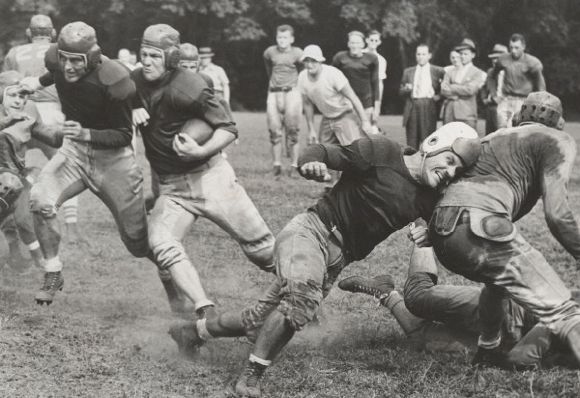As often as I’ve criticized Bud Selig and Joe Torre for not acting quickly enough to eliminate home-plate collisions from baseball, I should stop and praise them for finally eradicating the concussion-inducing crashes. It’s time for the sport to progress, and this step is a good one.
Football, on the other hand, like boxing, has no answer for what ails it. No helmet is going to stop brain injuries. Football is in trouble. From Joshua Shepherd’s Practical Ethics post about the moral role parents play in their children participating in contact sports:
“A number of ethical questions arise in connection with this growing awareness. (What should the governing bodies of sports leagues do to protect players? What do teams owe players in such sports? Is the decision to play such a sport, or to continue playing in spite of suffering a concussion, really autonomous? Should fans speak up about player protection, and if not, are they complicit in the harm done to players? And so on.) Here I want to consider one question that has received little attention. It involves the role of parents in fostering participation in high-impact sports.
Without parental encouragement, participation in such sports would dramatically decrease. Certainly, parental encouragement or discouragement can be trumped. In societies which highly value such sports, some adolescents would find a way to participate. But I will not consider here the (vexing) question of how best to respect an adolescent’s budding autonomy. Arguably, if an adolescent wants to participate in a high-impact sport, a parent should acquiesce. Whether that argument is plausible depends, in part, on the risks of playing the sport in question. The question I want to consider is the following: is it morally permissible for parents to encourage their children to play high-impact sports?”

